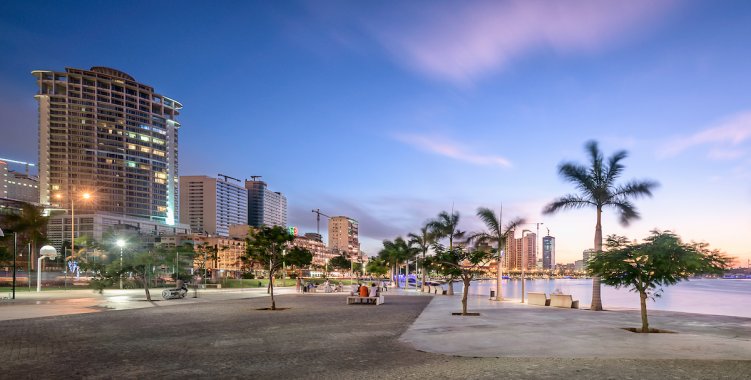The information is contained in an annex to the assessment report released on Thursday, in which the IMF states that after a strong push during President João Lourenço's first term (2017-2022) with progress in governance and legislation, reforms slowed down from 2022 onwards, and this dynamic should be reinvigorated.
The IMF says that the existing legal framework is in line with best practices, but that there has been no progress in institutional autonomy, independence and technical capacity to implement it, and that more transparent, participatory, publicly accessible and digitally automated procedures should be adopted.
Reforms to the judicial system have "stagnated since 2022" despite increased capacity building, the IMF says, pointing to the more than 1000 law enforcement officers, including judges, magistrates and police officers, trained in areas such as financial investigation, tax fraud and recovery of illicit assets, with support from the European Union and the United Nations Office on Drugs and Crime.
The National Asset Recovery Service (SENRA) published in 2023 a list of assets recovered since 2019, worth 19 billion dollars, of which 7 billion dollars was recovered at national level, including shares in banks and companies, real estate and cash.
The list was updated in 2024 with an additional 308 million dollars in seized assets, of which 83 million dollars in cash was fully recovered and deposited in the National Bank of Angola.
The IMF calls for "clear rules and greater transparency in the management, sale and allocation of proceeds from recovered assets", in addition to the use of asset recovery based on conviction being limited, as well as the restitution of assets seized in other jurisdictions.
The financial institution adds that progress in law enforcement has been penalised by the commutation of sentences, referring to the former Minister of Transport, Augusto Tomás, and the relative slowness in pursuing high-profile corruption cases such as that of General Kopelipa, still awaiting trial after more than five years [the trial begins next Monday].
The IMF considers that the National Strategy for the Prevention and Suppression of Corruption (2024–2027) is "short on concrete measures and actions", especially in strengthening existing institutions and areas such as the declaration of assets of high-ranking public office holders and politically exposed persons.
The document points to shortcomings in budgetary control and participation, blaming the National Assembly of Angola for "exercising little control over the planning and execution phase of the budget cycle" and the Angolan Court of Auditors for "continuing to issue ex-post audit reports [evaluation after the implementation of policies or programs] on the annual General State Accounts, which do not cover all government entities, and does not follow up on its audit recommendations".
In addition, civil society and the general public "have little room to contribute to the preparation of the budget and monitor budget execution", says the report consulted by Lusa.
There are also shortcomings in expenditure control and treasury management that are reflected in payment delays, with the IMF highlighting the weakness of procedures for controlling budgetary authorizations, delays in recognizing and budgeting late payments due to inadequate recording of invoices, and failures in forecasting cash flows.
On the other hand, public procurement remains subject to vulnerabilities that should be "promptly corrected" by adopting open and transparent procedures, it recommends.
"Contracts awarded through non-competitive competitive bidding (Simplified Contracting - CP) accounted for more than 80 percent of all contracts and remain the dominant form of public procurement," the IMF notes, a practice that "raises significant concerns regarding transparency, accountability and fairness and can lead to corruption and inflated contract prices."







